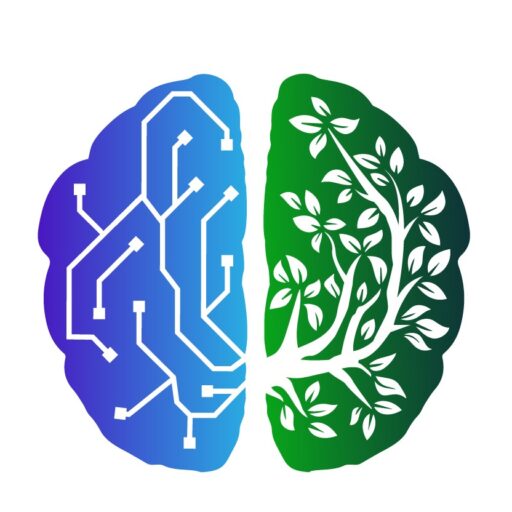Depression can have a profound impact on the lives of elderly individuals, affecting their overall well-being and quality of life. As we explore treatment options for this vulnerable population, one intriguing possibility is a drug called Spravato (Esketamine). In this blog post, we’ll delve into the safety and effectiveness of this innovative treatment while considering its unique features and suitability for elderly patients.
Understanding Spravato (Esketamine)
What is Spravato (Esketamine)?
Spravato or Esketamine is a medication that belongs to a class of drugs known as NMDA receptor antagonists. It is derived from ketamine, a well-known anesthetic agent. is administered through the nose and is designed to target the symptoms of treatment-resistant depression, which is a form of depression that does not respond to conventional antidepressants.
Mechanism of Action
Like antidepressants, esketamine raises the levels of certain chemicals like dopamine, norepinephrine, and serotonin that occur naturally in the brain as neurotransmitters. However, Spravato is different than antidepressants as it increases the brain’s most prevalent chemical messenger: glutamate levels. This results in a greater reach and more substantial impact on brain cells with a single dose compared to antidepressants.
FDA Approval and Indications
The U.S. Food and Drug Administration (FDA) has approved Spravato for use in adults between ages 18-65 with treatment-resistant depression. However, it is important to explore its safety and efficacy specifically in elderly patients.
Safety Considerations for Elderly Patients
Potential Side Effects for Elderly Patients
While Spravato can be effective, it is not without potential side effects. Common side effects may include dizziness, nausea, headache, and dissociation. However, these side effects are typically short-lasting and resolve soon after the treatment is self-administered.
Cardiovascular Risks for Elderly Patients
Elderly individuals often have pre-existing cardiovascular conditions. Therefore, it is crucial to consider the impact of esketamine on cardiovascular health. Consultation with a healthcare professional is essential to assess individual risk factors and determine the suitability of esketamine treatment.
Cognition and Delirium
As cognitive decline is more prevalent in the elderly population, it is important to evaluate whether esketamine nasal spray affects cognitive function or increases the risk of delirium. Research in this area is ongoing, and healthcare providers should closely monitor elderly patients for any cognitive changes.
Interaction with Other Medications
Elderly patients often take multiple medications for various health conditions. It is crucial to evaluate potential drug interactions between esketamine and other medications to ensure the safety and efficacy of the treatment.
Effectiveness of Esketamine Nasal Spray in Elderly Patients
Clinical Trials and Studies on Elderly Patients
Clinical trials and studies are crucial to determine the effectiveness of esketamine nasal spray in elderly patients. While research is still evolving, preliminary findings show promising results in reducing depressive symptoms and improving overall well-being.
Comparison with Traditional Antidepressants
Esketamine nasal spray offers a new approach to depression treatment. Studies comparing its efficacy with traditional antidepressants have shown mixed results. Further research is needed to establish its comparative effectiveness and determine the situations in which it may be most beneficial for elderly patients.
Practical Considerations and Recommendations for Elderly Patients
Administration and Dosing Guidelines
Healthcare providers play a vital role in determining the appropriate dose and administration schedule for esketamine nasal spray. They will consider factors such as the severity of depression, overall health, patient history, and response to treatment.
Cost and Accessibility
As with any medical treatment, cost and accessibility are important considerations. Discussing these factors with healthcare providers and exploring insurance coverage or assistance programs can help make esketamine nasal spray more accessible to elderly patients who may benefit from it.
Incorporating Esketamine into a Treatment Plan
Esketamine nasal spray is not a standalone treatment but is intended to be used as part of a comprehensive treatment plan for depression. It is important to integrate esketamine treatment with other therapeutic interventions such as psychotherapy, social support, and lifestyle modifications to maximize its effectiveness.
Recommendations for Healthcare Providers and Caregivers
Healthcare providers should carefully assess the individual needs and circumstances of elderly patients before considering esketamine nasal spray as a treatment option. They should weigh the potential benefits against the potential risks and closely monitor patients throughout the course of treatment. Additionally, caregivers and family members should be educated about the treatment, its possible side effects, and the importance of supporting the patient’s overall well-being.
Esketamine nasal spray presents a promising avenue for the treatment of depression in elderly patients. While it may offer an alternative for those who have not responded to traditional antidepressants, its safety and effectiveness in this specific population require further exploration. As ongoing research sheds more light on the benefits and risks, it is important for healthcare providers, patients, and caregivers to have open and informed discussions about esketamine nasal spray as part of a comprehensive approach to managing depression in the elderly.
By considering the unique characteristics and considerations of elderly patients, healthcare professionals can make informed decisions regarding the use of esketamine nasal spray as a potential treatment option. As our understanding of this innovative therapy continues to evolve, we move closer to providing effective and personalized care for elderly individuals battling depression.
If you have any questions or would like to find out more about Spravato, contact CNS Mental Wellness today by calling at (240) 439-4110 or by using our appointment request form online now. We look forward to serving you!


